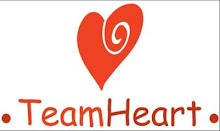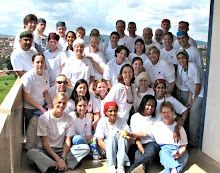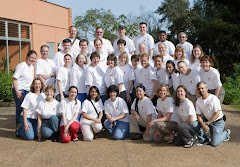The trip was extraordinary and life changing. It is hard to put into words: the depth of poverty in the countryside is alarming; the average income is $220 per annum. Children are in rags and bare feet in the countryside with considerable illnesses including rampant active and chronic rheumatic fever and tuberculosis. Our echo technician, Jennifer and I visited five community hospital for diagnosis of children as young as 9 years with advanced active rheumatic heart disease on the threshold of death from congestive heart failure. It was heart breaking to see these attractive kids for whom there is no treatment within the country. I am now approaching 50 years of involvement at the Massachusetts General Hospital in Cardiology. My training mentor was Paul Dudley White who emphasized clinical cardiac evaluation and definitive treatment. I had not seen a case of acute rheumatic fever for the past forty years yet saw multiple cases during this two week visit to Rwanda. I was not totally inexperienced in "Triage" medicine, having spent a year with a MASH Hospital in Korea (I am not Hawkeye) though this was the same MASH hospital from which that program evolved. To witness patients with diseases that no longer exist in our own country such as acute rheumatic fever and its consequences was, for me, as a trainee of Paul White, (who is responsible for describing the diagnosis and treatment of this disease) especially remarkable. In an African nation that has an average income of little over $200 per annum; it was evident that the children have little opportunity to avert the ravages of streptococcal infections. While it was a privilege to participate with Team Heart in this venture, it was, at the same time, depressing to leave behind young children with life threatening valvular heart disease that would be "duck soup" to treat in our own country. My tears of frustration and inability to help these beautiful children were suppressed with difficulty and I had many occasions to find myself in a quiet corner in which to regain my composure.
We saw a 20 year old woman in her third trimester of pregnancy with acute cardiac failure caused by ruptured chordae of the mitral valve from prior bacterial endocarditis. The woman will be sustained to 34 weeks of pregnancy to ensure a successful birth and the baby (a boy) will be delivered by Caeserean section, yet the mother, in the absence of reparative cardiac surgery will surely die leaving the infant as an orphan. This scenario was the subject of one of the first papers that I published nearly forty years ago and left me feeling impotent in saving this young woman. A young, 12 year old girl in the pediatric ward of the Central Hospital of Butare (CHUB) whom we visited was in acute cardiac decompensation with triple valve, rheumatic heart disease. Her mother, distraught at the bedside, was unable to pay for the drugs to bring this young girl out of incipient death from acute CHF. My visit to the pharmacy to purchase the appropriate drugs (Spironolactone, Metolazone) was a simple temporizing solution to her near death experience yet eventual death lurks in the near future without corrective surgery. Such experiences left this participant depressed and feeling helpless in applying half a century of easy solutions to a cardiac crisis. Is there not a way in which such children in advanced heart failure can be accorded the necessary valvular replacement surgery to return them to useful lives?? Do we not have a global obligation in following such human beings to intervene at all costs to ensure that they, as we, are eligible for reparative surgical interventions? Too often, the proverbial observation of "not what you know but who you know" applies to those fortunate enough to be sent for corrective surgery.
This respondent has felt enormous gratitude for being included in this humanitarian enterprise and has great respect for the leaders of this venture yet is left with a great sense of guilt both because the western world (us) did not respond when the genocide was ongoing, leaving hundreds of thousands to die horrible deaths by machete and now in the presence of a virtually absent interventional health care program leaves it citizens to the whims of chance and non treatment. The program of Partners In Health strives to reverse this trend and all of us should be willing participants. We should all look, not only toward the immediate problem of the individual whom we have saved but toward the larger population at risk in the community in whom an early death from correctable cardiac disease is their ultimate expectation. The Rwandan people are friendly and seemingly happy though one wonders why. Those women who were raped during the genocide and acquired HIV/AIDS are given jobs sweeping the streets; the country is lush, remarkably clean, and reminiscent of the State of Vermont.
Warren Harthorne



